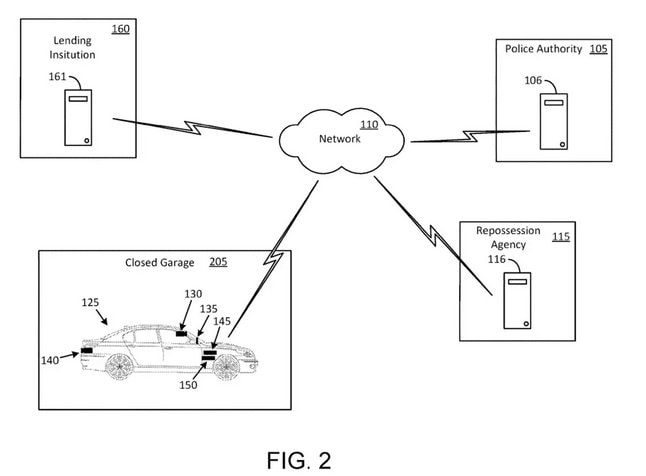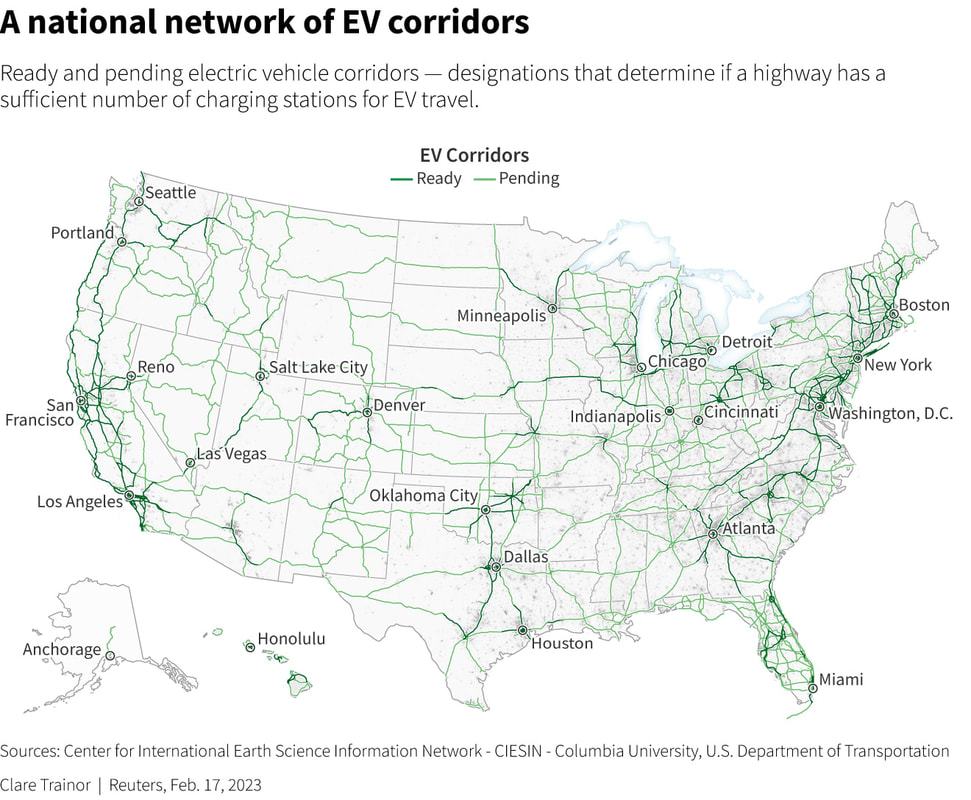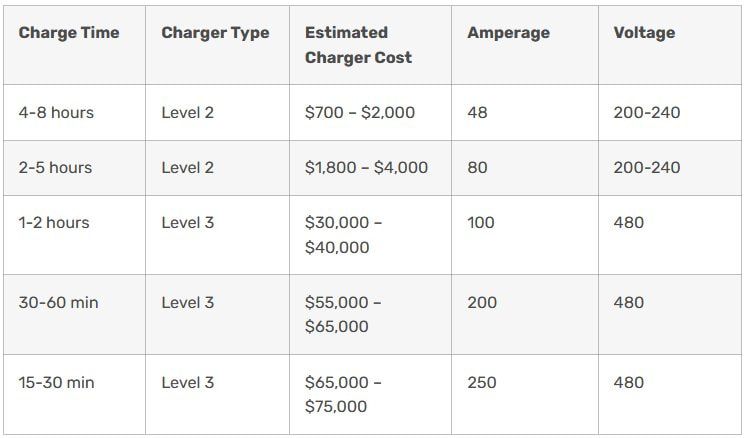Repo-Man
Speaking of roundups... last week Ford filed a patent titled "Systems and Methods to Repossess a Vehicle".
I know you all want a self-driving car that can drive you home after a long evening at Rocco's Pub. Well, that same car will be able to drive itself to the re-possessor when you miss a payment. No repo-man will be needed. YAY!
Even better... the smart car will be able to open your smart garage door and take off while you're asleep. Sweet dreams are made of this!
The United States Postal Service (USPS), who manage to lose hundreds of millions every year, has been tasked to electrify it's vast fleet of delivery trucks. Although the USPS is supposedly self-sufficient, they have been granted $3 BILLION taxpayer dollars as part of the Inflation Acceleration Act.
The USPS plans to purchase 66,000 EVs at a cost of almost $10 BILLION. This year they will purchase over 9,000 electric Ford Transits and they have issued $260 Million in contracts for 14,000 charging stations (which comes to about $18, 600 per charger).
www.foxbusiness.com/politics/us-postal-service-buys-9250-electric-vans-14000-charge-stations
On a more positive note... the delivery trucks will be able to drive themselves to the Repossession Agency when the USPS can't pay it's bills.
The Biden Administration has committed $7.5 BILLION to install 500,000 EV chargers across the nation's busiest highways (that's $15,000 per charger BTW). The goal is to have charging stations no more than 50 miles apart along the 48,000 miles of the Interstate system and an additional 25,000 miles of the busiest highways.
Based on this program there would be at least 1,500 locations but there would likely be around 15,000.
The federally-funded chargers must be placed within 1 mile of state-designated EV Corridors. This will insure that rural areas do not get any financial benefit from the Federal spending-spree.
It's also unlikely that the Federally-funded chargers will be located at existing service stations. Surveys conducted by states show that EV owners want amenities ... like manicures, showers and fine dining while they wait 40 minutes to recharge.
I should also point out that the true cost is FAR greater than the Federal estimate. Fast chargers currently cost $30k - $75k... much more than the Fed estimate of $15k. I assume that the manufacturers will kick in the rest and make profit from the charging fees (like current gas stations).
So, the true cost of 500,000 chargers will be around $25 BILLION. I know that sounds like a lot of money, but its actually pretty tiny compared to the US GDP which was around $23 TRILLION in 2021.
Honestly, I'm not opposed to spending $7.5 BILLION to jump start the EV Corridors. My concern is that the technology just isn't ready and the plan is simply not practical.
When you look at a typical rest-stop along the Interstate there will be as many as 20 gas pumps (or there may be multiple service stations with 8-10 pumps each). Since it only takes 5-10 minutes to fill your car each pump can service about 8 cars per hour while a fast charging station can only service one.
500,000 chargers will be totally inadequate for peak periods. To replace 20 gas pumps will require 100 - 150 fast chargers!
The power consumption is also mind boggling. A 200 amp charger (needed for a 40-minute charge) consumes 96 kW of power. So... 100 chargers would require 9.6 Megawatts of power. That's enough to power 10,000 homes! In other words, the EV service center will consume more power than the entire town it's located in!
It would require 30,000 solar panels to produce that much power at noon on a sunny day. A standard solar panel is 3.25 ft x 5.5 ft ... or about 18 square feet. Thus 30,000 panels would occupy about 536,000 square feet or 13.5 acres.... AND it doesn't work at night!
This is basic physics, folks. There is no free lunch.




 RSS Feed
RSS Feed